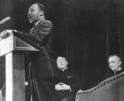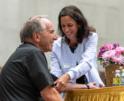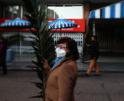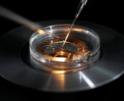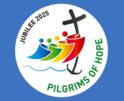
Culture
In the papers of Bishop John Bernard Fitzpatrick there is a letter written in the hand of Father John Bapst, SJ, and dated Oct. 20, 1854. In the letter, Father Bapst discusses a well-documented incident which took place earlier that month in Ellsworth, Maine.
Father Bapst was born in La Roche, Switzerland, on Dec.17, 1815. Sources differ on exactly when he entered the Jesuit order, but it appears to have been at around 20 years of age, and he was later ordained on Dec. 31, 1846.
The following year came the Sonderbund War, which saw the Catholic Swiss states unsuccessfully unite against the centralization of power, and which eventually saw Switzerland emerge as a federal state. In the aftermath, the Jesuits were expelled from the country, and Father Bapst travelled to the United States.
Upon arrival, his first assignment was at Old Town, the home of the Penobscot Indians who had been without a priest for 20 years. He arrived on Aug. 7, 1848, with no knowledge of English, the Ponobscot language, or their customs. As a testament to his character and determination, Father Bapst was able to overcome these deficiencies within a few short months, and soon became an integral part of the community.
The build up to the incident in Ellsworth started a year before his letter, in 1853, when Father Bapst visited the community and delivered a series of lectures on the Catholic Church. In doing so, he made several converts in the community, but also aggravated the Know-Nothing elements of the community, which "denounced (him) from the pulpit and in the press. (And) he was warned that he would suffer injury if he did not stop."
In October of the same year, another incident occurred which increased the friction between these groups. The local school teacher declared that all students were required to read the Protestant Bible in school or they would not be able to attend. This policy was approved by the local school committee, and after two students were expelled, Father Bapst and his parishioners petitioned the committee to reconsider.
The committee stood by its decision, and, undeterred, Father Bapst decided to form a school for his parishioners. As a result, several incidents transpired, most notably a mob which gathered outside of his home to confront him on June 6, 1854. Fortunately, his housekeeper informed them that he was away on a sick call, but that did not dissuade them from breaking all of the rectory windows before dispersing. A similar incident occurred the following month, which resulted in a failed attempt to burn down the church. Word of these actions reached the administration in Boston, and it was decided to reassign Father Bapst to Bangor, Maine, to take him out of harm's way.
This action appears to have alleviated tensions somewhat, but the following October, Father Bapst found himself travelling through Ellsworth in route to another community. While there, he decided to stay and hear confessions on Saturday, then say Mass on Sunday before continuing his journey.
That Saturday evening, a mob appeared outside the home of a local family he was staying with, and demanded he come out to meet them. Hoping to avoid any harm coming to the family or their home, he gave himself up to the crowd, and was taken to the Ellsworth Machine Company where he was stripped, tarred, and feathered. He was then carried on a rail through the streets and left unconscious at Tisdale's Wharf.
Upon regaining consciousness, he was met by a group of Catholic men who had set out to find him, and brought back to the home from which he was taken to recover. Despite this brutal episode, under guard of armed local Catholics he still said Mass Sunday morning, and again the next day, before returning to Bangor by carriage. The incident was investigated by the State Attorney General, but none of the offenders were prosecuted.
The incident was reported in various local newspapers over the following weeks. At least one of these accounts, in the Bangor Journal, praised him for the courage and calm with which he bore this suffering. After several decades had passed, the "History of the Archdiocese of Boston" reflected that "He may have been imprudent. He may have miscalculated the real character of his enemies...But these things are as nothing when compared with his magnificent priestly spirit. He was unselfishly willing to follow the Master, no matter where the path might lead."
In his letter, Father Bapst writes of the account published in the Bangor Journal, and states what while it was correct, he felt it was incomplete. This was in reference to his being in very good health following this incident, and he notes, optimistically, that the sympathy he has received following this outrage will be extremely useful for the cause of the Catholic Church in Maine.
Suggested further reading:
-- "History of the Archdiocese of Boston," by Lord, Sexton and Harrington. Boston: The Pilot Publishing Company, 1945.
-- "From Generation to Generation II: Stories in Catholic History from the Archives of the Archdiocese of Boston," by Ronald D. Patkus. Hanover, MA: The Christopher Publishing House, 1992.
THOMAS LESTER IS THE ARCHIVIST OF THE ARCHDIOCESE OF BOSTON.
Recent articles in the Culture & Events section
-
Dr. King's visit to Boston and St. John's Seminary 60 years agoViolet Hurst
-
The honor of caring for our priestsKate Marshall
-
Scripture Reflection for April 13, 2025, Palm Sunday of the Lord's PassionDeacon Greg Kandra
-
'Put no trust in princes'Greg Erlandson
-
The power of hopeMichael Reardon

